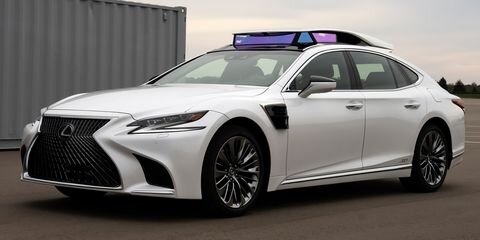Introduction of World’s First Autonomous Cars
The 2020 Olympics to be held in Tokyo, Japan is a hotly anticipated event. But besides seeing the top athletes perform on the biggest stage in the world, there is another exciting experience for visitors going to Japan for the Games. Enter Toyota’s free self-driving shuttle car service.
Image from: Car & Driver
Yes, that’s right. Toyota Research Institute (TRI) has prepared a modified Lexus LS that will give rides to those who register along a preset route during the 2020 Olympic Games in Tokyo, namely on the public roads in the Odaiba district of Tokyo. Odaiba is a shopping and entertainment district on a man-made island in Tokyo Bay that will become even busier than usual during the Olympics. Events scheduled to take place there include marathon swimming and triathlon in Odaiba Marine Park, beach volleyball in Shiokaze Park, and basketball in Aomi Urban Sports Park.
Image from: Agoda
However, while the news has come out, Toyota isn't announcing all that many details about the program just yet; details like how many cars are to be used, how long the ride will be and how to register to be selected for a trip. What we do know is that according to TRI communication manager Rick Bourgoise, the program will run from July to September 2020 and that it will operate in a "mobility as a service" driving environment.
The cars will be Platform 4 (P4) automated driving test vehicles that are modified versions of the fifth-generation Lexus LS sedan, by SAE's definition. That means humans won't ever need to take control of TRI's Lexus under most conditions. However, under a requirement by Japanese law, a human safety driver will be in the car at all times, TRI says.
And while it’s tempting to think of the self-driving cars as an automated shuttle service between sporting venues, TRI is quick to remind us that no, the Lexus LS vehicles are not to be considered shuttles taking tourists where they want to go.
Image from: Los Altos Chamber of Commerce
"There will be predetermined routes showcasing the vehicle's capabilities in a broad range of driving environments, challenges, and conditions," said TRI’s John Hanson, who leads Toyota’s U.S. advanced technology and business communications.
He also points out that a Level 4 autonomous vehicle—one that can operate without human input—is required to stay within a set area approved for its use, also known as an Operational Design Domain (ODD), which Toyota is creating specifically for use during the Olympic Games.
One thing is for sure though, TRI engineers are confident that their self-driving cars will be able to navigate the Odaiba streets, Bourgoise said.
"Our team is capable of accomplishing it, which serves as our next major development milestone," he said. "We will continue to test on our closed course in Michigan, public roads in Michigan and California, and on public roads in Japan,'' he added, noting that some of the challenges the cars will face include the "challenging infrastructure" of Odaiba.
Image from: Bloomberg
With less than a year before the public demonstration starts, we will be eagerly expecting more details as the Summer Olympics come closer.




